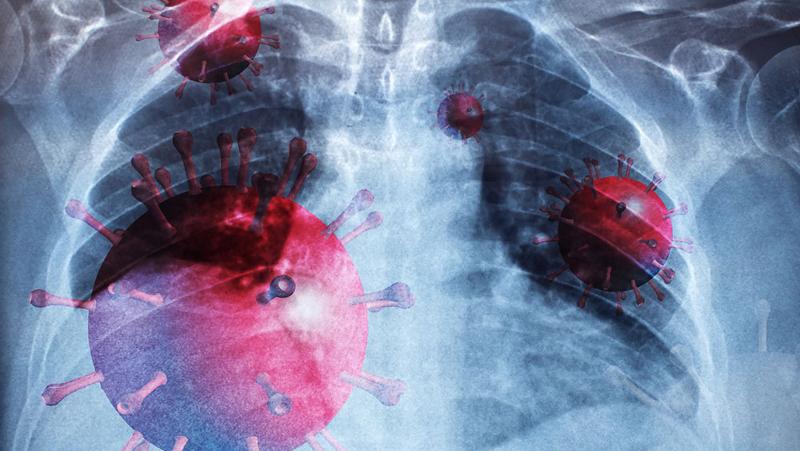
Australian researchers are part of a new Oxford University-led study that has found early treatment with a medication commonly used for asthma appears to substantially reduce the need for hospitalisation in people with COVID-19.
QUT mathematician and medical doctor Associate Professor Dan Nicolau and Edith Cowan University PhD candidate Sanjay Ramakrishnan, also a medical doctor, are co-lead authors on the clinical trial in the United Kingdom.

The STOIC (STerOids In COVID-19) study found that inhaled budesonide given to patients with COVID-19 within seven days of the onset of symptoms also reduced recovery time.
Budesonide is a corticosteroid used in the long-term management of asthma and chronic obstructive pulmonary disease (COPD).
Findings from the phase 2 randomised study were published on the medRxiv pre-print server.
The findings from 146 people who took part in the trial – of whom half took 800 micrograms of the medication twice a day and half were on usual care – suggests that inhaled budesonide reduced the relative risk of requiring urgent care or hospitalisation by 90 per cent in the 28-day study period.
Participants allocated the budesonide inhaler also had a quicker resolution of fever, symptoms and fewer persistent symptoms after 28 days.
Dr Ramakrishnan said the study showed promising results.
“The STOIC trial clearly shows the potential of an effective early intervention in preventing deterioration of COVID-19,” Dr Ramakrishnan said.
“Treating COVID-19 early on and avoiding hospitalisation will be particularly important for the billions of people across the world with limited access to hospitals.
“The possibility of reducing the long-term effects from persistent COVID-19 symptoms is also exciting. This cheap and widely available intervention can be rolled out very quickly across the world while we wait for vaccines to get to everyone.”
QUT’s Associate Professor and Future Fellow Dan Nicolau said the researchers noticed early in the pandemic that people with asthma and chronic lung disease (COPD) were not being hospitalised at the same rate as others with COVID-19.
“We hypothesised that asthmatics were already doing something that was somehow protecting them, and inhaled steroids were the only logical possibility,” he said.
Professor Nicolau said mathematical modelling by the team suggests that “inhaled steroids might be acting like a handbrake on a car”.
“You put it on if you’re parked on a hill (when you get symptoms), just in case the car starts rolling away down the hill unchecked,” he said.
Professor Nicolau said the drug should also be unaffected by new COVID-19 mutations.
The study also demonstrated a reduction in persistent symptoms in those who received budesonide.
Oxford University’s Professor Mona Bafadhel, who led the study, said, “although not the primary outcome of study, this is an important finding”.
“I am encouraged to see the reduction in persistent symptoms at 14 and 28 days after treatment with budesonide. Persistent symptoms after the initial COVID-19 illness have emerged as a long-term problem. Any intervention which could address this would be a major step forward,” she said.
As well as the Oxford Biomedical Research Centre, the STOIC trial was supported by AstraZeneca.
QUT Media contacts:
Niki Widdowson, 07 3138 2999, n.widdowson@qut.edu.au
After hours: Rose Trapnell, 0407 585 901 media@qut.edu.au.


